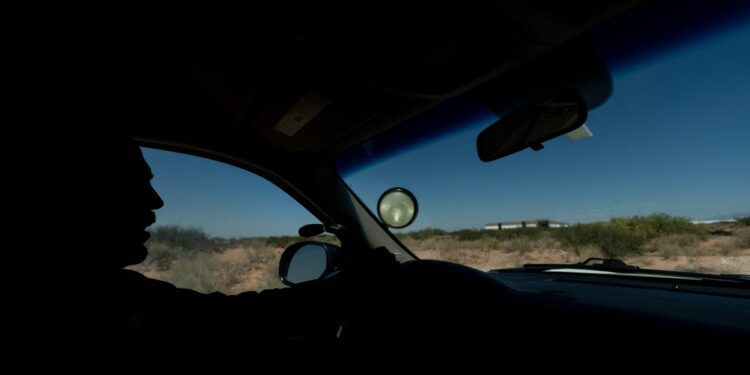More: El Paso Election Day 2024 guide: What you should know before you vote
These millions of people enjoy living in a region that contributes significantly to the U.S. economy. Approximately┬а5 million┬аAmerican jobs depend on U.S. trade with Mexico, a significant portion of which flows through Southern Texas. The Port of Laredo, now the┬аlargest┬аport in the U.S, is key to facilitating this trade. Additionally, the Borderplex region тАФ which encompasses El Paso, Texas; Las Cruces, New Mexico; and Ciudad Juarez, Mexico тАФ has┬аemerged┬аas the fifth-largest manufacturing hub in North America.
The borderlands represent a vibrant, culturally rich, and economically crucial part of the country that has long been overshadowed as politicians turn border security into a political football.
Since neither campaign appears focused on detailing a true border-focused policy platform, I will detail some key policy areas that deserve more.
First, South Texas is┬аenduring┬аa severe drought that threatens not only the regionтАЩs residents but also its role as a key agricultural hub. Despite the borderlandsтАЩ importance to the national economy, this crisis has largely escaped national attention.
The drought, compounded by MexicoтАЩs failure to meet its water delivery obligations under the 1944 Water Treaty, has hit border counties particularly hard. Regions in Texas are┬аrunning out┬аof water on the state is losing a farm every week. Recently, TexasтАЩ only sugar mill┬аclosed┬аdue to water shortages, costing 500 jobs. Federal intervention тАФ whether through renegotiating water deliveries or providing emergency funding тАФ is urgently needed.
Economic distress is another urgent issue.┬аPoverty rates┬аalong the Texas-Mexico border are significantly higher than the rest of Texas, with 23 percent of border residents living below the federal poverty line. Trade, bolstered by the U.S.-Mexico-Canada Agreement (USMCA), remains a crucial economic driver.
Trump deserves credit for securing the deal, but his cavalier talk of тАЬclosing the borderтАЭ jeopardizes that very progress. Instead, both candidates should focus on expanding border and trade infrastructure, particularly in transportation and warehousing, to keep trade flowing and support local economies.
Health care is also a priority. Border communities suffer from high rates of chronic diseases, limited access to health care, and public health threats like opioid addiction. The Texas Border Coalition has called for increased funding for public health programs to address these issues. Both Trump and Harris could deliver real, meaningful solutions, but itтАЩs barely been mentioned on the campaign trail.
Of course, border security and immigration reform are also a priority. But the most effective border management solutions will come from those who live and work in the border region.
America needs smart investments in infrastructure, technology, and staffing to secure the land ports of entry while fostering greater cooperation among local, state, and federal law enforcement. And the time is now for comprehensive legislation to truly address the immigration system and secure the border, and do away with temporary executive actions that come and go with each new administration.
Consider the bipartisan Dignity Act, which offers lasting relief for Dreamers, expands work visas to meet labor demands, and reforms the asylum system while maintaining its integrity. The bill also strengthens border management to ensure it is secure, fair, and aligned with U.S. trade and economic interests.
Ultimately, the U.S.-Mexico border is about more than just immigration. ItтАЩs a dynamic region that plays an essential role in the national economy, culture, and security. The voices of those who live in the border region deserve to be heard, and their needs should be central to тАФ or at the very least, not absent from тАФ discussions about the future of border policy and the potential regional implications. ┬а
As we near Election Day, both candidates must move beyond partisan soundbites and offer real, substantive solutions to the challenges facing AmericaтАЩs border region that go well beyond security alone.
David┬аStout┬аis a county commissioner in El Paso County, Texas, and Chairman of the Texas Border Coalition.┬а
Source link : http://www.bing.com/news/apiclick.aspx?ref=FexRss&aid=&tid=6722356065844844b6c95e8a3445872d&url=https%3A%2F%2Fwww.usatoday.com%2Fstory%2Fopinion%2F2024%2F10%2F30%2Fthe-u-s-mexico-border-is-about-more-than-just-immigration-david-stout%2F75913253007%2F&c=9747218820652879738&mkt=en-us
Author :
Publish date : 2024-10-30 00:25:00
Copyright for syndicated content belongs to the linked Source.










